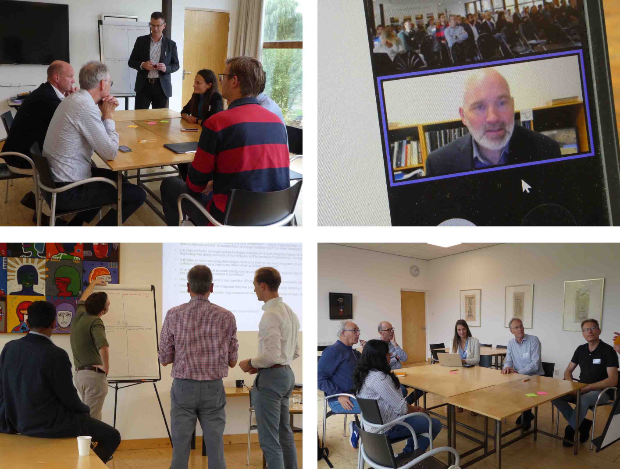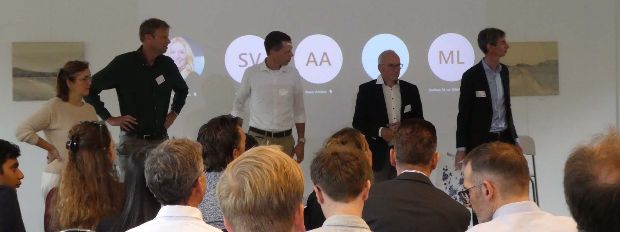|
|
Pro2Tech symposium about the future of
heat generation in Dutch Industries |
On the 28th of September, pro2Tech organised a symposium and workshop to discuss the future of heat generation in Dutch industries. Approximately 110 people from industry and academia joined to listen to different viewpoints and ultimately, to have a lively discussion on how to move forward and bring about the de-fossilisation of thermal energy processes.
The morning session was kicked off by Rene Pecnik & John Nijenhuis who highlighted that 80% of industrial gas demand is used for heat generation. Thus, de-fossilisation of heat generation is an immense task requiring novel technologies and investment.

After the introduction, four experts highlighted different aspects of this task. Mark Schmets (ministry of economic affairs) indicated the possibility of using the national growth fund as a means to finance such an undertaking. Professor Brian Elmgaard (Denmark Technical University) showed the immense potential of heat pumps in the country of Denmark. Thereafter, Kees Biesheuvel (DOW) provided an industrial perspective regarding the needs and criteria of the chemical industry. Lastly, Peter Rop (NEM) showed that technological challenges regarding electric heating are anything but trivial. The morning session was closed with a plenary discussion with expert panellists.
In the afternoon, workshops on six different topics were held; system integration, direct heating, thermal energy storage, heat integrated design, high COP technologies and industrial demonstrations. In these workshops a pro-active approach was used to identify how we can tackle specific challenges. One conclusion here stood out; the participants agreed that large-scale demonstrations (pilots) of novel heat generation technologies are necessary to accelerate implementation and thus de-fossilisation.

At the end of the day, both academia and industry not only agreed that changes on a massive scale are necessary and but also that we can bring about these changes by working together. Therefore, a large new collaboration between academia and industry will be set-up by jointly creating a new growth-fund application. |
|
|
|
|
| |
|
|
|